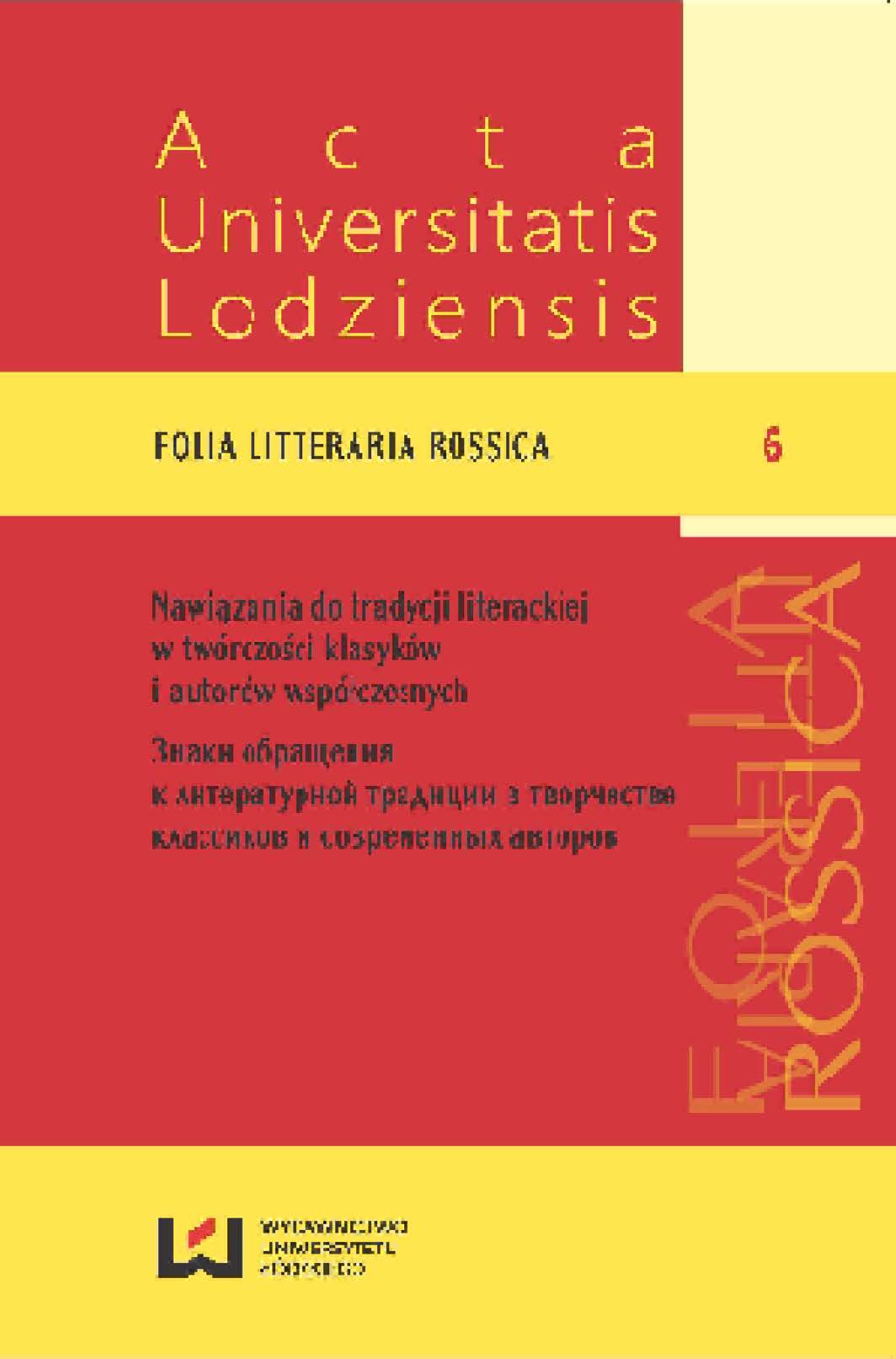"Mozart and Salieri" in the field of intertextual games
DOI:
https://doi.org/10.18778/1427-9681.06.07Keywords:
Alexander Pushkin’s dramaturgy, the latest Russian drama, the classics and the present day, the game of poeticsAbstract
The reception of Alexander Pushin’s ‘little tragedy’ Mozart and Salieri – that was originally meant as a dramatic study of envy – by the Russian literary and theatre scholars, has tended to move in the direction of exhibiting two types of artistic creators: Mozart – the genius, an artist with a Godgiven talent, and Antonio Salieri – the craftsman-composer who practices his musical craft with great skill and, moreover, to using sensational plot devices, such as murder committed out of envy, and the eruptions of human passions and emotions.
The authors of the latest versions of Mozart and Salieri, Nikolai Kolyada and Olga Boguslavskaya, make reference to the romantic original work by employing a model situation of contrasting two different types of artists, their opinions on the essence of art (brilliance and genius), and their disposition and ethical principles.
They fill in the Pushkin’s pattern with the realities of artistic life in modern Russia. The authors use familiar quotations, situations and selected motifs and submit them to the conventions of the game, typical of the poetics of intertextuality. Thanks to the convention of the game (swapping roles, introducing contemporary themes, such as the role of cultural policy and television in building artistic careers), they manage to avoid the pathos and philosophical stigma of the original, providing, instead, a socio-cultural image of the creative individual’s fate in modern times.
Downloads
References
Белый А., Преображение героя в «Маленьких трагедиях» А. С. Пушкина, [в:] Духовно-нравственные основы русской литературы, Кострома 2009, с. 47–53.
Google Scholar
Богуславская О., Моцарт и Сальери, на сайте http://www.protagonist.ru/autors/2010/b/autor-13 [15.10.2013].
Google Scholar
Булгаков С. Н., Моцарт и Сальери, Приводится по сайту: http://www.as-pushkin.ru/index.php?cnt=6&sub=9&page=23 [15.09.2013].
Google Scholar
Вацуро В. Э., Записки комментатора, Санкт-Петербург 1994, с. 282.
Google Scholar
Гершензон М. О., Мудрость Пушкина, Москва 1919, с. 120.
Google Scholar
Ильин И. П., Постструктурализм. Деконсткуктивизм. Постмодернизм, Москва 1996, с. 227.
Google Scholar
Коляда Н., Моцарт и Сальери, Приводится по сайту: www.m.litfile/net/read/313177/317000¬¬_318000?page=1 [15.09.2013].
Google Scholar
Кякшто Н. Н., Русский постмодернизм, [в:] Русская литература XX века. Школы, направления, методы творческой работы, ред. А. М. Березина, Cанкт-Петербург 2002, с. 307.
Google Scholar
Нефагина Г., Гоголевский текст в постмодернистской парадигме, [в:] Двести лет Гоголя. Сборник научных трудов, ред. В. Щукин, Kraków 2011, с. 323–335.
Google Scholar
Сурат И. З., Сальери и Моцарт, «Новый мир» 2007, № 6, с. 167¬–188.
Google Scholar
Федотов О., И Моцарт, и Сальери... Метастихопоэтика романа Владимира Набокова «Дар», «Нева» 2013, № 8.
Google Scholar
Фоменко И. В., Ввведение в практическую фонетику, Тверь 2003, с. 107.
Google Scholar
Szajnert D., Peryteksty, intencje, interpretacja, «Zagadnienia Rodzajów Literackich» 2006, № 1–2, с. 39.
Google Scholar
Downloads
Published
How to Cite
Issue
Section
License

This work is licensed under a Creative Commons Attribution-NonCommercial-NoDerivatives 4.0 International License.












